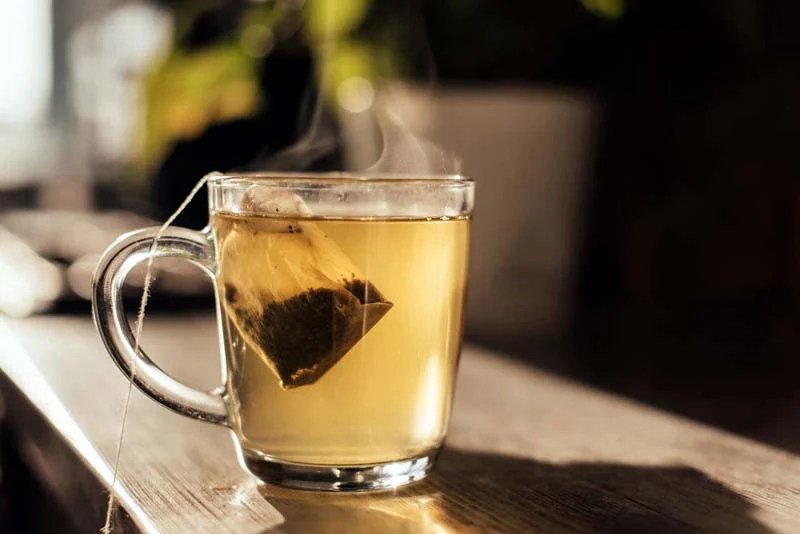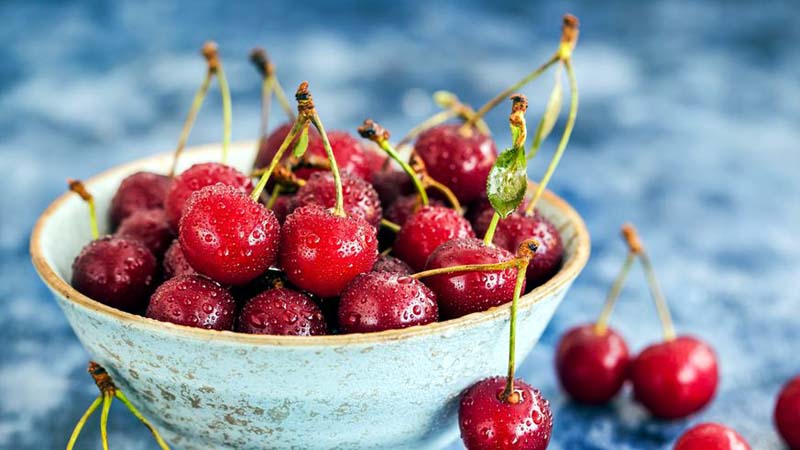![[feature] 10 Best Foods To Help You Sleep](https://blogger.googleusercontent.com/img/a/AVvXsEgZvhXUTwttSSGZunMT8cJdNr8dnLhfHe76hWFm80ZUyoQkG8tnwKr4WzgqG_BjK5xdpmlxhpis_nYlByXf60a22ndagKbtp5EGwck50xIkixvmW9c3Ec_uthnY8tNGepi-QD-mwZNFnwmeofeRPDZfd2KjHZOoXY24we8IM8GcomqW1tqU9R_klo3M=s16000-rw) |
| © Ekaterina Smirnova / Getty Images |
A good night's sleep can change everything. Not only does being well-rested give your brain time to recharge, but it also helps your immune system fight illness, reduces stress, and lowers your risk for serious health problems, like heart disease and diabetes.
But if you're spending more time counting sheep than actually catching Z's, you're not alone. More than one in three adults in America aren't getting the recommended seven hours of snoozing regularly, per a study by the CDC.
There is hope for finally getting the ever-elusive shut-eye, though. Things like creating a sleep routine or making sure your pillow is up to par can help bring on sweet dreams. Another thing that can help you catch them Z's more efficiently: Changing your diet.
"Pairing the right types of foods in the evening can promote and improve the way you sleep," says Rachel Brief, a registered dietitian at Culina Health. "In general, you want to look for foods that have protein, fiber, and some healthy fat for adequate blood sugar management before bed."
For snooze support, you also want to seek out foods with the amino acid called tryptophan. (If you've ever felt the urge to take a nap after Thanksgiving dinner, you can thank tryptophan, since turkey is rich in it.) The amino acid helps the body produce serotonin, one of the hormones which help regulate the sleep cycle.
Another nutrient you should probably add to your diet is vitamin B6. It also supports the production of serotonin and melatonin, which is also necessary for a restful night's sleep. Melatonin basically tells your body when it's time to sleep and when it's time to wake up by distinguishing between night and day—or in more fancy language, it regulates your body's circadian rhythm.
But if you're looking at this as an excuse to up your late-night snack game, sorry to disappoint. Brief recommends consuming these foods in a lighter meal about two to three hours before lights out so that your body has enough time to process and digest it. "Eating and then immediately laying down can actually interfere with getting a good night's sleep and may trigger digestive issues such as acid reflux," she says.
Ready to hit the hay (and the grocery store)? Check out this list of the 10 best foods to help you sleep and wake up on the right side of the bed.
1. Almonds
 |
| © Provided by Women's Health |
Almonds are "the perfect bedtime snack," Brief says. Not only do they (or a tablespoon of almond butter) contain protein, fat, and fiber that will stabilize your blood sugar, but the nuts also contain tryptophan and magnesium, which help to naturally lower the stress hormone cortisol, Brief explains. Low cortisol levels help you drift off to sleep. But in the morning they start to surge in order to wake you up. Like melatonin, cortisol also helps to regulate your circadian rhythm.
2. Cherries
 |
| © Provided by Women's Health |
Whether you eat them fresh or have them as a juice or smoothie, tart cherries are a great food for promoting sleep, says Brief, as they contain melatonin, a key to improving overall sleep patterns. Melatonin helps the body maintain a regular sleeping cycle, so that it knows when it's time for bed and when it's time to wake up.
3. Chamomile tea
 |
| © Provided by Women's Health |
Add a cup of (herbal or decaffeinated) tea to your nighttime ritual. Brief recommends chamomile, specifically, due to its high levels of the antioxidant apigenin, which has been found to promote relaxation.
4. Eggs
 |
| © Provided by Women's Health |
Remember those sleep all-stars tryptophan and B6? Eggs contain both, as well as melatonin and blood-sugar balancing protein, all of which work together to support a healthy snooze.
One pro-tip from Brief: This is not the time for an egg white omelet. The yolk is where the tryptophan is found.
5. Pistachios
 |
| © Provided by Women's Health |
Vitamin B7, healthy fat, and protein— pistachios have all three, making them a triple threat when it comes to sleep benefits. And if you're a fan, good news. "A whopping 49 pistachios is one serving," Brief adds.
Read More: How Stretching This Sneaky Muscle Could Improve Your Low Back Pain
6. Peanut butter
 |
| © Provided by Women's Health |
Pair peanut butter, a great source of healthy fats, protein, and tryptophan, with a banana, a great source of vitamin B6, magnesium, and potassium, for one dynamic dream duo.
In general, Brief recommends eating a tryptophan-heavy food with a source of carbohydrates to maximize its impact. "Think of carbs as the car that drives tryptophan to the brain," she explains. "From there, tryptophan gets converted to serotonin, the chemical that can make you feel calm and drowsy."
7. Salmon
 |
| © Provided by Women's Health |
Salmon (and other fatty fish) contains high levels of vitamin D and omega-3 fatty acids, both of which research has shown to help you sleep better. People who ate salmon three times a week were able to fall asleep faster and self-reported better daily functioning than those who didn't, per a study in the Journal of Clinical Sleep Medicine.
8. Greek yogurt
 |
| © Provided by Women's Health |
If you haven't already added Greek yogurt to your diet for its probiotic goodness, here's two more reasons: It's high in protein and contains significant amounts of tryptophan, says Brief. "Swap the ice cream nightcap for a creamy bowl of Greek yogurt to help your circadian rhythm," she suggests.
9. Dark chocolate
 |
| © Provided by Women's Health |
Dark chocolate contains magnesium and serotonin, which are both essential for relaxation, Brief says, not that you need another excuse to have it as an evening snack. Talk about a sweet end to the day.
10. White rice
 |
| © Provided by Women's Health |
Eating foods with a high glycemic index can lead to you falling asleep faster. When researchers compared the sleep quality of people in Japan who ate a controlled diet of either rice, bread, or noodles, they found that the rice group reported better sleep quality than the others, per a study published by the Public Library of Science.
See more at Women's Health
























